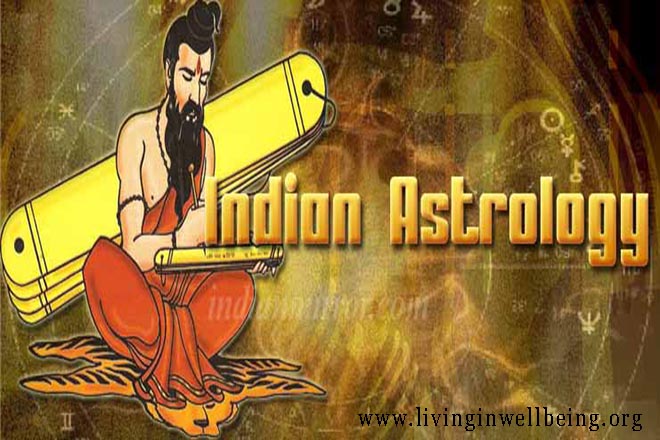
Indian Astrology
Astrology is a group of systems, traditions, and beliefs which hold that the relative positions of celestial bodies and related details can provide information about personality, human affairs and other ”earthly” matters. A practitioner of astrology is called an astrologer. Few astrologers believe that the movements and positions of celestial bodies either directly influence life on earth or correspond to events experienced on a human scale. Astrology is considered as a symbolic language, an art form, or a form of divination. Astrology is considered as a pseudoscience or superstition by the scientific community. The word astrology comes from the Latin name” astrologia’ (astronomy).
Indian Astrology or Hindu astrology or late Vedic astrology is well known as Jyotisha. Traditionally, it has three branches. Actually the word Jyotish belongs to Vedanges. There are six Vedanges: Shiksha, Kalpa, Vyakarana, Jyotisha, Niruktha and chhandas. Indian astrology has two branches, Ganitha (Siddhanda) and Phalita (Samhita plus Hora). The foundation of Jyotisha is the notion of bandhu of the Vedas or scriptures, which is the connection between the microcosm and the macrocosm. Jyotisha include several nuanced subsystems of interpretation and prediction with elements not found in Hellenistic astrology, such as its system of lunar mansions (Nakshatras).
Astrology remains an important facet in the lives of many Hindus. In Hindu culture, new born babies are traditionally named based on their jyothish charts, and jyotish concepts are pervasive in the organization of the calendar and the holidays as well as in many areas of life, such as making decision about marriage, opening a new business, moving into a new home etc. To some extent, astrology even retains a position among the sciences of modern India. The term ‘jyotisa’ is the sense of one of the vedanga. The documented history of Jyotishas begins with the interaction of Indian and Hellenistic cultures in the Indo-Greek period. Historically, the study of astrology in India was an important factor in the development of astronomy in the early middle ages. In Jyotisha, the zodiac (Rashi) is called kalpurusha, the eternal time that has no beginning or end. In Jyotisha, the natal chart is the bhava chakra. The dasha system shows, which planet will be ruling at particular times in jyotisa.
Horoscopic Astrology
Horoscopic Astrology has been practiced in India, since ancient times. Vedic astrology is the oldest surviving form of Horoscopic astrology in the world. A Horoscope is calculated normally for the moment of an individual’s birth, the beginning of an enterprise or event, because the alignments of the heavens at that moment were thought to determine the nature of the subject in question. Horoscopic astrology is the most influential and widespread form of astrology in Africa, India, Europe and the middle east. Central to the Horoscopic astrology and its branches is the calculation of horoscope or astrological chart.
By: astrologies
Article Directory: http://www.articledashboard.com
Article Source: http://www.articledashboard.com/Article/Indian-Astrology-Hindu-astrology-and-late-Vedic-astrology/1958987












